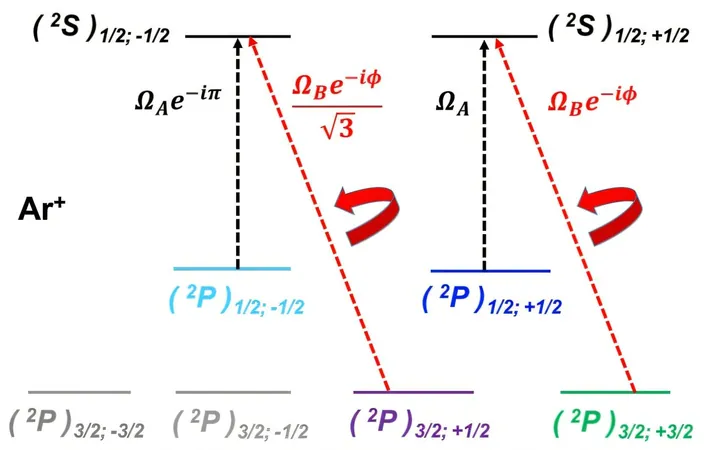
Groundbreaking Bell Test to Unlock the Secrets of Quantum Entanglement!
2024-11-04
Author: Wei
Introduction
In a fascinating new development, researchers at Imperial College London have proposed an innovative method to directly investigate the enigmatic phenomenon of quantum entanglement, commonly described as 'spooky action at a distance.' In this perplexing state, the properties of entangled particles become interconnected in such a way that measuring one particle instantly influences the other, regardless of the distance separating them. This pivotal research is set to be published in the prestigious journal Physical Review X.
The Bell Test and Quantum Mechanics
The Bell test, a fundamental experiment in quantum mechanics, aims to prove that entangled particles are not influenced by 'hidden variables.' While this test has historically been conducted using pairs of entangled photons, leading to groundbreaking insights and earning the 2022 Nobel Prize in Physics, the scope of these experiments has been limited.
A New Approach from Imperial College
Now, a dedicated team from the Imperial College Department of Physics — comprising Dr. Marco Ruberti, Professor Vitali Averbukh, and Professor Florian Mintert — has proposed an exciting new application of the Bell test: probing quantum entanglement through the process of photoionization. In this scenario, a photon strikes an atom, ejecting an electron and resulting in entangled states of the free electron and the ion that remains.
Advanced Many-Body Theory
Utilizing advanced many-body theory, the Imperial team has demonstrated that it is possible to carry out the Bell test through simultaneous measurements of the spin of the emitted photoelectron and the photon emitted by the remaining ion. This method not only opens new avenues for understanding quantum mechanics but also has potential implications in quantum computing and information technology.
Conclusion
As researchers continue to push the boundaries of our understanding of quantum entanglement, this breakthrough could revolutionize the way we perceive the fundamental workings of the universe. Stay tuned for more updates on these exciting developments in the world of physics!

 Brasil (PT)
Brasil (PT)
 Canada (EN)
Canada (EN)
 Chile (ES)
Chile (ES)
 Česko (CS)
Česko (CS)
 대한민국 (KO)
대한민국 (KO)
 España (ES)
España (ES)
 France (FR)
France (FR)
 Hong Kong (EN)
Hong Kong (EN)
 Italia (IT)
Italia (IT)
 日本 (JA)
日本 (JA)
 Magyarország (HU)
Magyarország (HU)
 Norge (NO)
Norge (NO)
 Polska (PL)
Polska (PL)
 Schweiz (DE)
Schweiz (DE)
 Singapore (EN)
Singapore (EN)
 Sverige (SV)
Sverige (SV)
 Suomi (FI)
Suomi (FI)
 Türkiye (TR)
Türkiye (TR)
 الإمارات العربية المتحدة (AR)
الإمارات العربية المتحدة (AR)